Why we can’t agree on South Africa
We were sitting having breakfast after a long workout at the gym when Lissette said it. “You could retire here, couldn’t you? I can see it by the look in your eyes. I couldn’t”.
I protested with all the logical reasons why I couldn’t retire in Cape Town but halfway through kind of gave up…she was right in some ways. There are many things to love about Cape Town. And that’s true especially if you’re white.
Chances are that if you are white in Cape Town you are among the privileged few. I would say that 95% of people living a middle/upper class existence in Cape Town are white. And more than anyplace we’ve been, the minority live a pampered lifestyle in comparison to the (black) majority. In fact, the black minority and cheap labour is one of the reasons why life is so good in Cape Town. I’m going to get a lot of shit for saying that but it’s true.
The main reason for great service is that wages paid black labour are so low. So every white household can afford to have a housekeeper to come in once or twice a week, supermarkets can afford to have an incredible number of employees on hand in the store (they will still bag your groceries for you in SA, something I haven’t seen anywhere else), gas stations have full service and you’ll get the most helpful and friendly attention when going to fill up. You don’t even have to step out of the car. They have ’car guards’ on the streets – they’ll tell you where and how to park and will watch your car while you’re doing your business. In return you give them a bit of change when you come back. At the gym people (the clients are again 95% white) don’t even bother cleaning after themselves after using a machine. As someone told me, “that’s what cleaning people do”. Staff will even come around during class to see if they can fill up your water bottle. At the gym restaurant (the gym we went to was Virgin Active in Wembley), you have about 10 black employees in the kitchen, all preparing smoothies and fancy bio lunches for white clients. Again, service comes with a smile. There are always lots of smiles in South Africa.
Then there’s all the other great stuff associated with Cape Town: nice weather, incredible scenery and geography, great wines, and fantastic (and international) food at good value. I’ve said it before – South Africa should be a foodie destination. Never have we been served such great food, whether it be a springbok steak or a yellowtail filet at a local restaurant, or Indian or sushi ordered in (we’ve had some of the best sushi anywhere in Cape Town), or just a cake or muffin at a local café. They don’t cut corners on quality or service in South Africa. How about shopping and modern conveniences? Forget any ideas you may have about ‘being in Africa’ – shopping centers and grocery stores are as modern and well-stocked as anywhere in the Western world. Of course most of the patrons are white, while the service staff and security guards are black.
On friendliness. One of the things that always makes people worried about coming to South Africa is crime. And since crime is committed mainly by the majority (poor) blacks I have to admit we were wary. But from the minute we got off the plane we were greeted by friendly and relaxed black and coloured people (there are a lot of people of mixed descent, especially in the Cape region, who are broadly classified as “coloured”). It was their friendliness that stood out over the next 3 months. We met people, whether in cafes, restaurants, or through Uber (we got around by Uber) and had more conversations than we’ve had anywhere else combined over the past year. They wanted to talk, whether it was asking us where we come from, what we do, or to discuss politics, both domestic and international. It is the friendliest place we’ve been.
So, going back to the opening line at the top of this post, maybe you can see why I could settle in South Africa, or, specifically, Cape Town. Life is easy, locals are friendly, wine is good…and I would be hiking Table Mountain all the time. I didn’t have a problem waking up at 5am in Cape Town for a hike. I loved it, our 3 months in Cape Town was the best and easiest living we’ve had anywhere.
But as I alluded to, your feelings on Cape Town might be different if you’re not white.
I actually think that visiting South Africa as a mixed race couple was the best glimpse into both worlds. Because although apartheid is officially over in South Africa, it still exists socially and economically.
Part of the incredible friendliness thrown our way – mostly by blacks and coloureds – was because of Lissette. I was just a bystander. If I would go out on my own people were friendly but stiff, go with Lissette and suddenly they were chatting and joking…The ‘car guards’ would ask her where she came from and would give her a high five, the black girls at the hair salon would wave at her as she walked by, our cleaning lady at the apartment would touch Lissette’s hand when they spoke. They were curious where she came from and what nationality she was. And even if they maybe didn’t know what ‘Hispanic’ was, the important thing was that she was more ‘one of them’ than one of ‘us’ (i.e whites).
With white South Africans it was a totally different matter. She would often feel ignored and they wouldn’t look her in the eye. Conversation was always directed at me. It was only when she spoke, the perfect ‘non-ethnic’ English coming out, that you could see the switch click in their heads. Then they would look at her and it’s as if the race thing totally fell away. But the point is, as Lissette succinctly said, “I’m 48, I’m too old to be a 2nd class citizen somewhere and having to prove myself”.
.
And that’s her problem with South Africa.
People may jump on the above to bring up the past evils of apartheid. Blaming white South Africans is too easy. Dutch settlers arrived in the Cape region around 1650. So when people say things like “the whites should just go home”, the truth of the matter is that they’ve been here a long time and that it is their home as well. They don’t have another ‘home’ to go back to. It’s more complicated than that.
As a child I lived in Zambia for a few years. We had a black gardener as well as a black housekeeper. I think every household did. Just as I’m sure nothing has changed in Zambia, this is the way it is in South Africa. In the ‘cleaning room’ of the apartment we stayed in Cape Town (a room with a mop, broom, washer/dryer, and household products) there is a chalkboard. On it was written “Hello Sunshine”. It was written by the owner of the house for his housekeeper Pamela. He speaks of her like a daughter, with affection but also exasperation when she comes in late or doesn’t show up. When I think of the whites and blacks in South Africa I think of this relationship: a relationship borne of circumstances and a mutual need for each other, with affection at times but also exasperation (and anger) at other times.
Anger is something we read and heard a lot about during our 3 months. A facebook posting by a Durban real estate agent calling blacks ‘monkeys’ made a big splash. An opposition party leader wrote this piece entitled “Why do white people despise blacks?” in the country’s 2nd largest newspaper. Even our (Canada’s) Globe and Mail had an article on increased racial concerns in South Africa.
I read a great article in British Airways Business Life Magazine when flying back to Europe which detailed how astute Mandela was in bringing black and white together. He might, deep down, have had personal bitterness towards whites for the way he was treated for over 30 years – but if he did he never let it show as president. He knew that the country needed the whites and put the country before himself. That sense, the need for unity, seems to have been forgotten.
.
Above: Some of the nicest people we met were in Oudshoorn. Una (on the left) owns the Yamkela guesthouse with her husband. She drove us to a restaurant 10 km out of town then came to pick us up at the end of the evening. We ran into Jaco and his wife when buying wine next door. We got to talking and he kept giving us drinks and food to sample…and refused any money. Incredibly passionate and warm-hearted people.
.
My last point on politics is on the whites today. You hear a lot about the grievances of the blacks but not much on the whites. You’ll see a lot of older white South Africans in Cape Town and they’re quite dejected. Most of their children have made a life for themselves outside South Africa, mostly because of the lack of career opportunities brought about by “affirmative action” (every white South African we met complained that jobs were given to blacks with lower credentials). Their kids have built a life for themselves in Australia, the UK, or the US. They feel the tide has turned against whites in South Africa and that they have to go overseas to build a good life. The other complaint was about the value of the Rand which is at its lowest levels since apartheid. This has been a direct result of Zuma’s presidency which has seen the value of the Rand devalue by more than 50% since he took over in 2009* (see graph). A few whites told us that they are now “economic prisoners” in their own country.
* I had picked up an old guidebook on South Africa and had been pleasantly surprised by pricing when in South African. Prices were less than half that quoted in the guide. Not so great though if you are South African.
And while politics can be divisive, many blacks we met felt the same way as whites. We met a car guard that we nicknamed “John Wayne” (because of his cowboy hat) who worked next to our gym. One day he brought up politics, “Fuck Zuma! South Africa is for everyone, black, white, everyone. If white go South Africa will be disaster!”. Cape Town however is different than much of the rest of South Africa.
Ok, enough politics.
Miscellaneous observations and anecdotes on Cape Town/South Africa
.
– White people walking barefooted. What is that?? Every day I’d see white people walking barefooted from their car into the mall. Just really odd.
– White South Africans are hardcore: you’ll see them mountain biking in 35C temps on dirt roads in the middle of the wild. They remind me of what I’ve always thought of Australians: hardy, tough and sporty.
– A few things I won’t miss about South Africa: really bad internet, high Airbnb prices in Cape Town (undeveloped short-term rental market), and really big insects. We didn’t see many cockroaches but on 3 occasions we had roaches that slipped in through the open balcony door and I had to chase them down. They were as big as my thumb, no kidding. We saw a rain spider once on the balcony and Lissette freaked. It was the size of a tarantula.
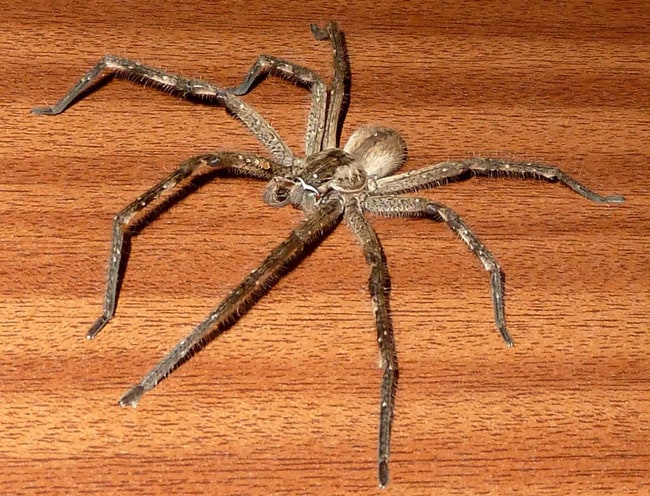
– Despite the size of the insects, South Africans don’t seem to believe in putting screens in windows. Considering that, it was strange that very little ever came in (except ants).
– I’ve never seen plant life as pretty as that you’ll see in the Cape area of South Africa.
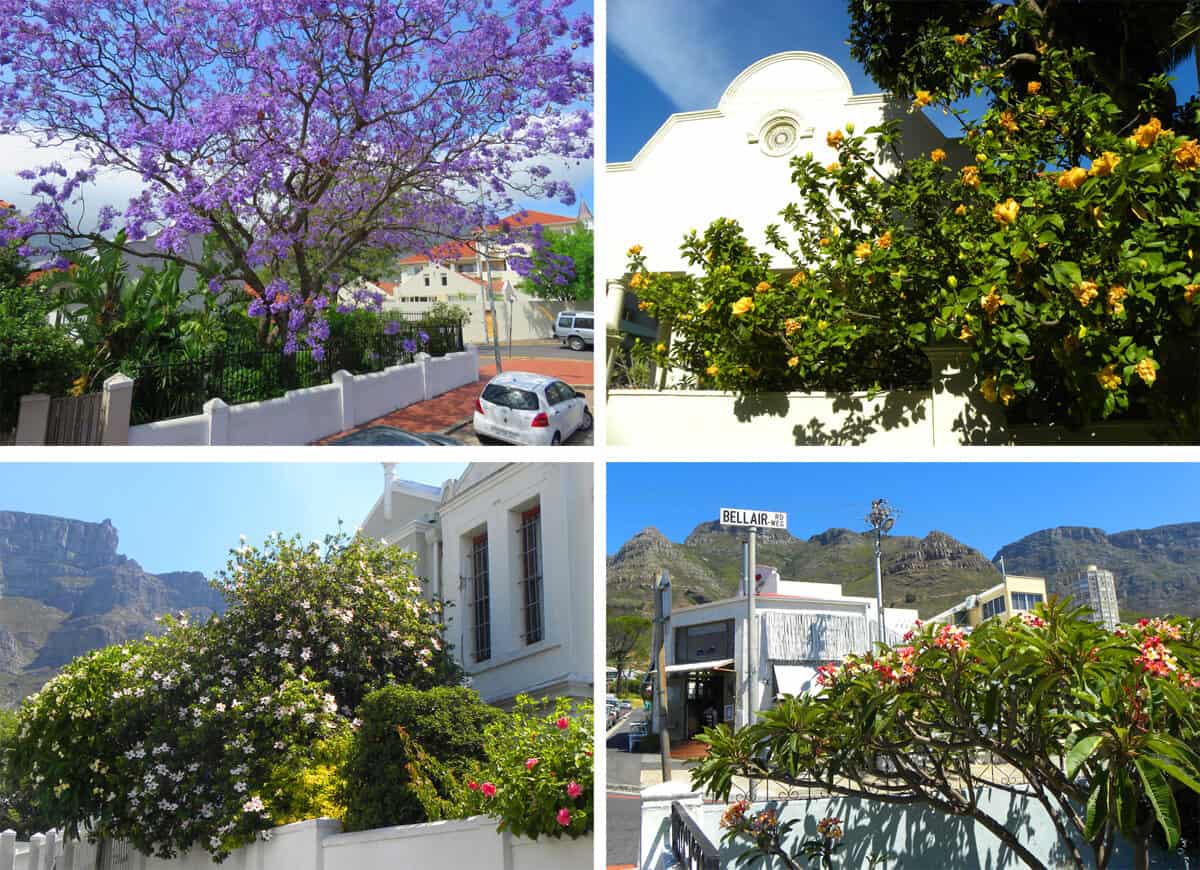
– We loved our neighborhood (Oranjezicht) and are happy not to have based ourselves in downtown Cape Town. We honestly didn’t like the vibe downtown as much and it gets a bit sketchy at night. Oranjezicht always felt safe.
– Cape Town is the most gay-friendly city we’ve ever seen. Our gym, Virgin Active in Wembley seemed about 75% gay. Part of the reason may also be the real estate prices in the area – gays in general have more disposable income. As Spanky said, if we stayed in Cape Town all our friends would either be black or gay.
– The V&A Waterfront is where all the tourists go – it is honestly the most commercial, pricy, over-touristy spot in town and I don’t understand why it is so popular. Spend some time in the Company’s Gardens instead, have lunch at the park restaurant, and check out the National Gallery which is really quite impressive.
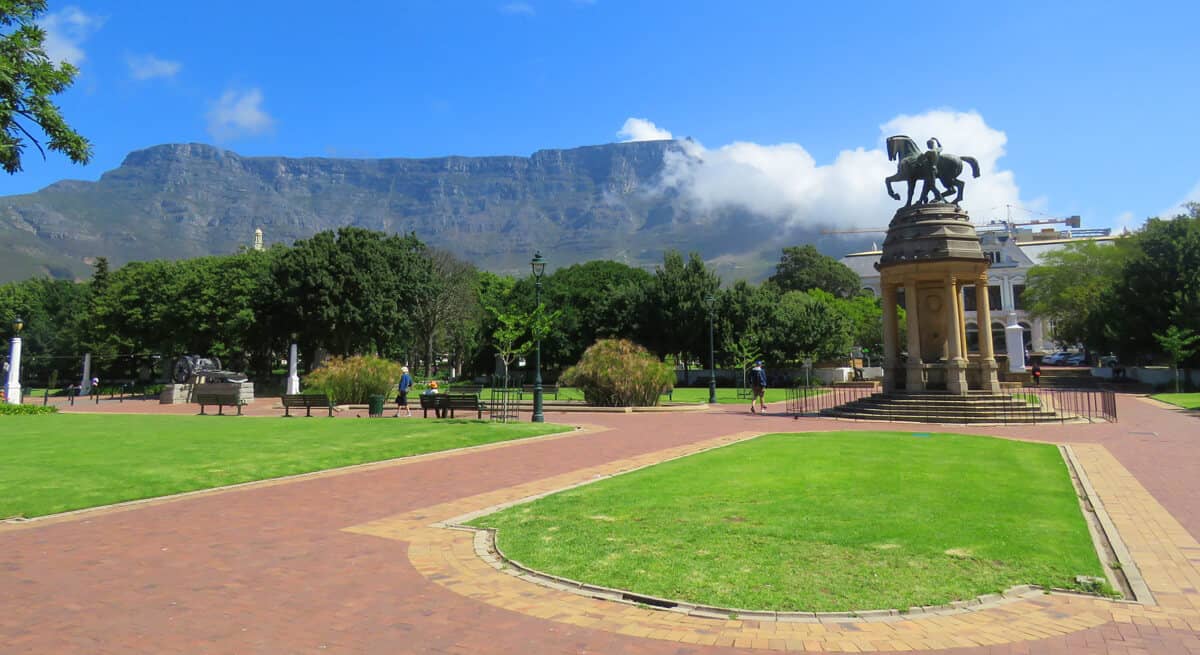
– Cape Town is like Southern California. It is extremely cliquish and everything is about status and looks. Lots of fake blonde hair and botox.
– Johannesburg, according to South Africans, has more of a black middle class than Cape Town. Wages for the same job are much less in Cape Town than in Johannesburg just because of the better quality of life. But Capetonians love their city and lifestyle and would never trade it for anything.
– Language. Arriving in South Africa I was surprised by the prevalence of Afrikaans. It is actually the most spoken language, both by Dutch-origin South Africans and coloureds. Everyone speaks English though. But I especially had a tough time with street names and neighborhoods which are often Afrikaans. Try saying Vredehoek, Weltevreden, or Buitenkant. I embarrassed myself a lot trying to pronounce Afrikaans names.
– Beer. The most popular beers are Black Label and Castle. But the best beer is Windhoek.
– Dogs and cats. Everyone has dogs and cats in South Africa. When we took our Garden Route vacation we stayed in a guesthouse that had 4 dogs and 4 cats. We were invited to spend New Year’s eve with family of a South Africa friend – they had 2 dogs, 2 cats (and a parrot). Everywhere we went we were greeted by dogs and Lissette had her face licked by more dogs than she can count. A great experience, especially as she’s in the past been petrified of dogs. South Africa may have helped her get over that.
– Adventure sports. I’ve covered all the hikes up Table Mountain and Lion’s Head that I did. I also paraglided over Cape Town from Signal Hill. What I haven’t mentioned was that Lissette bungee jumped from the Bloukrans bridge – the highest bridge bungee jump in the world and the 3rd highest bungee of any kind. So South Africa inspired us to do some activities we’ve never done.
The above are some of the things I took away from our 3 month stay in Cape Town. Really though, what’s going to stay with me more than anything were the friendly people – black, white, and coloured – that we met along the way. The friendliest people we’ve met anywhere on our travels. This we both agree on.
Will we be back? I hope so. I’m hoping we see other parts of South Africa next year. I felt a sadness leaving South Africa that I haven’t felt with any destination. I miss the outdoors. I miss the views from our window.
.
I’d love feedback, especially from South Africans or anyone who’s visited South Africa. The above were our observations and experiences over 3 months in Cape Town. I don’t pretend to be an expert. So thoughts, opinions and your own experiences are more than welcome.
Related: 8 reasons to go to South Africa
Related: A guide to the best wineries of Stellenbosch and Franschhoek
Related: Finances: How we can afford to travel full-time
Ps. If you find our blog helpful, please consider using our links to book your flights, hotels, tours, and car rentals. Have a look at our Travel Resources page.

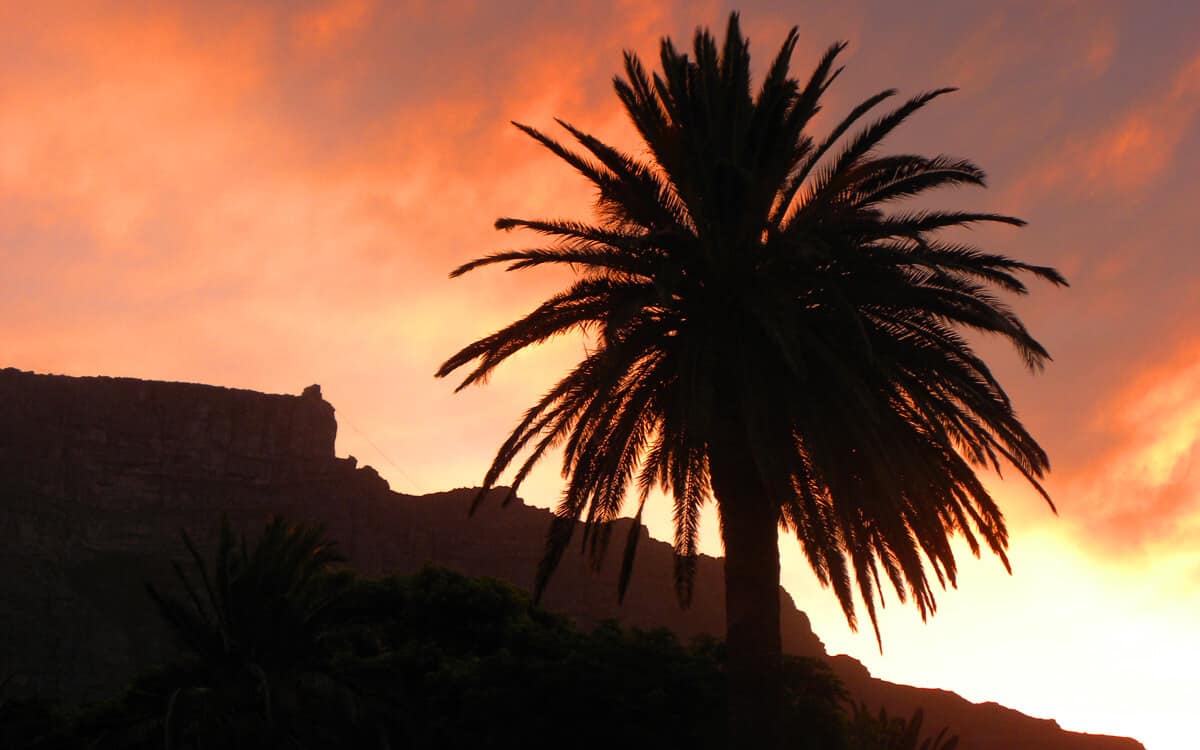
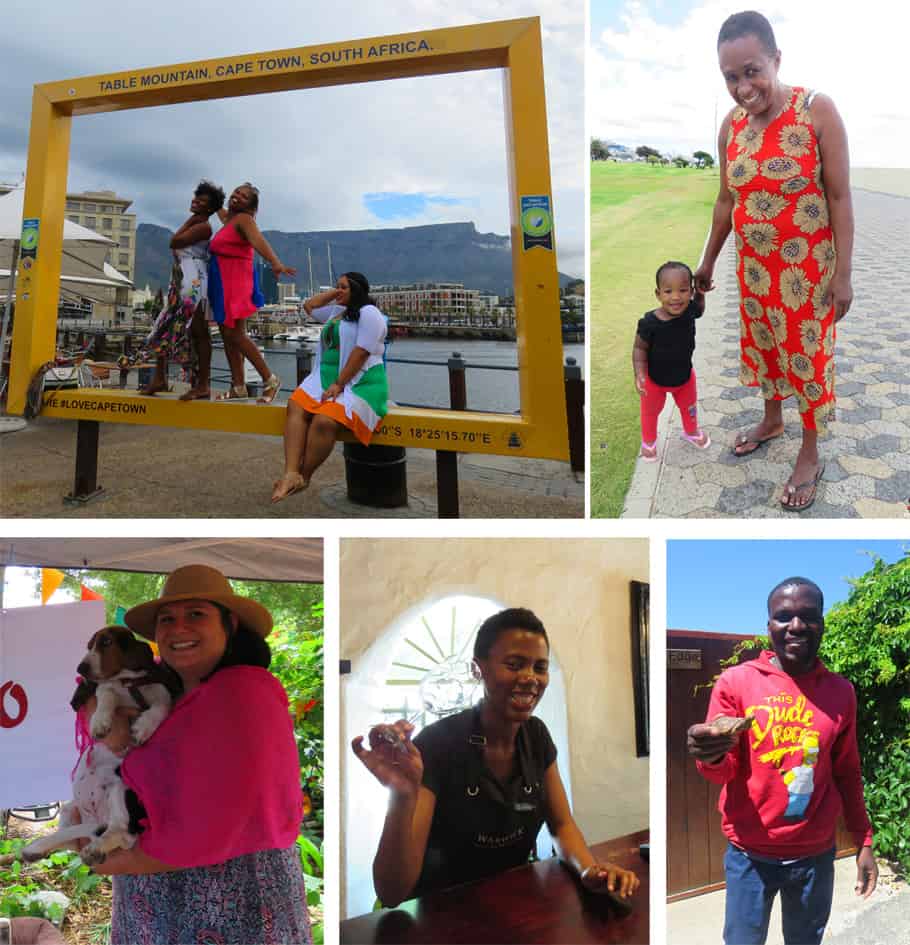
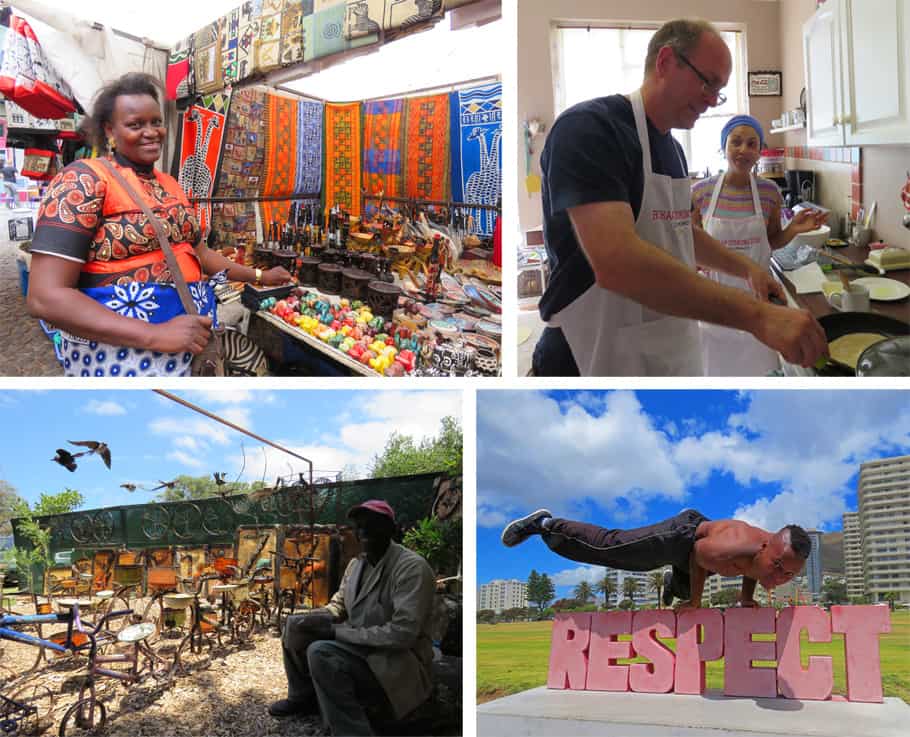
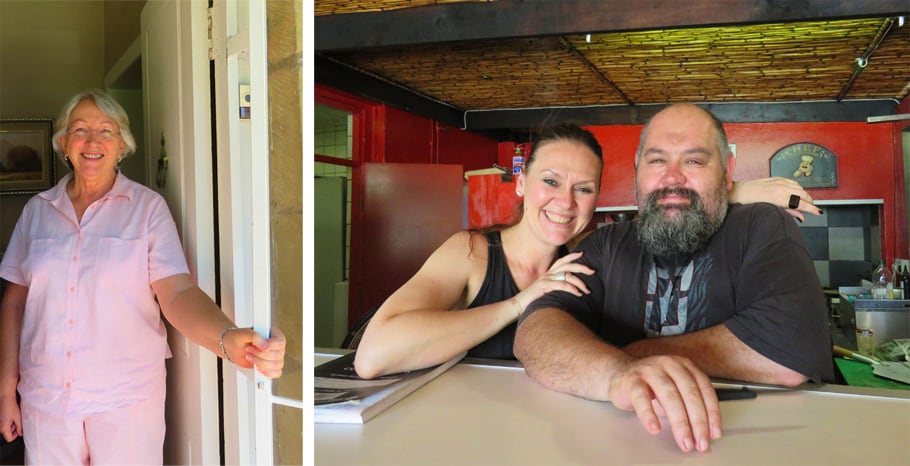
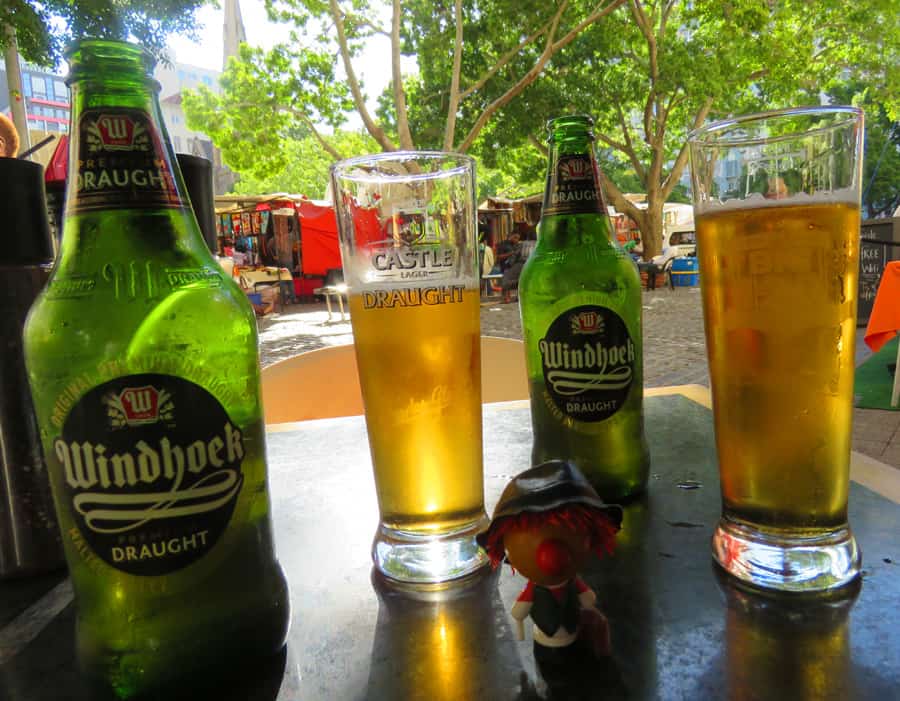
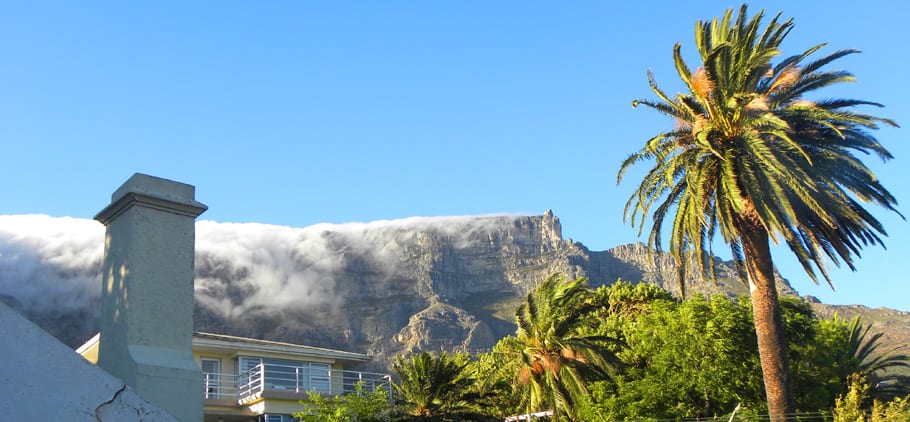
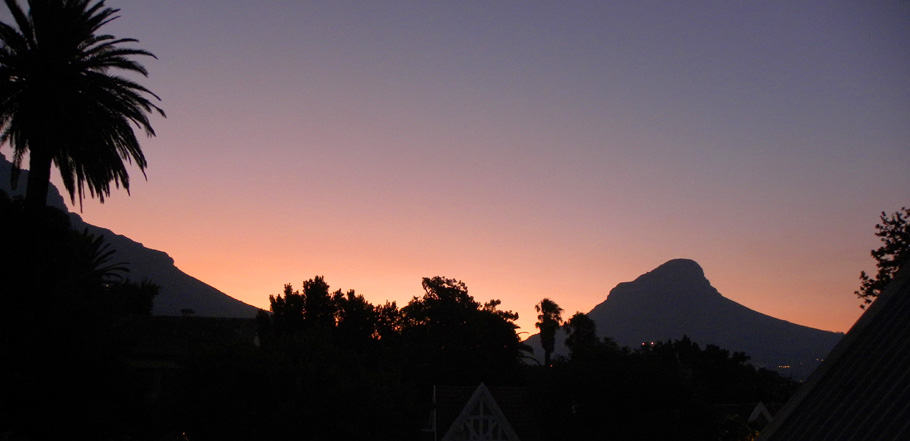

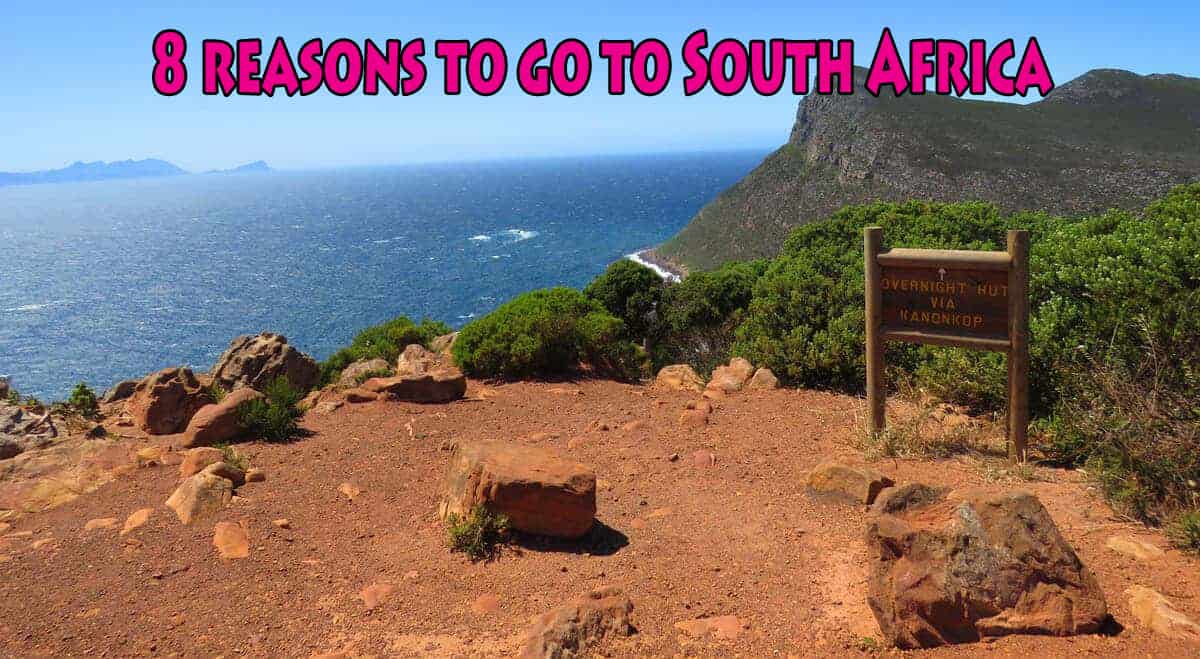
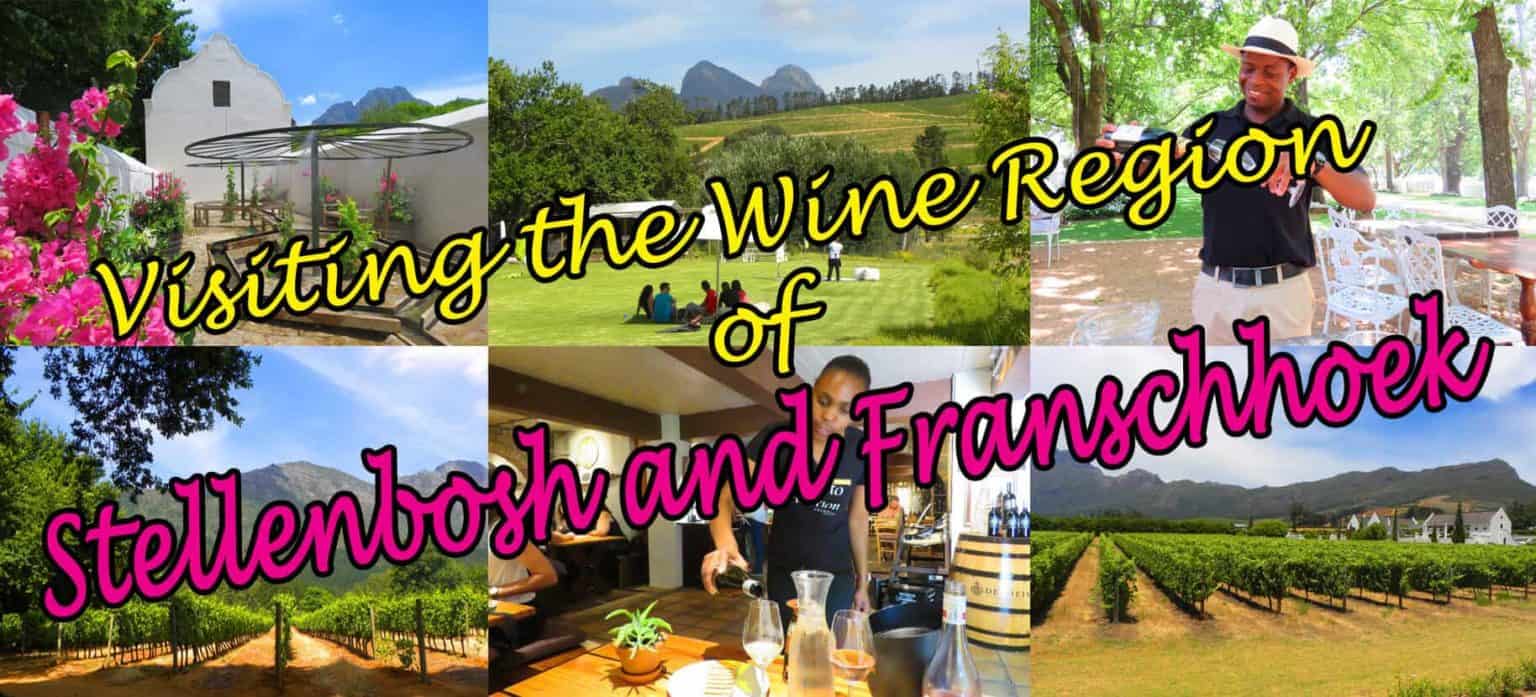
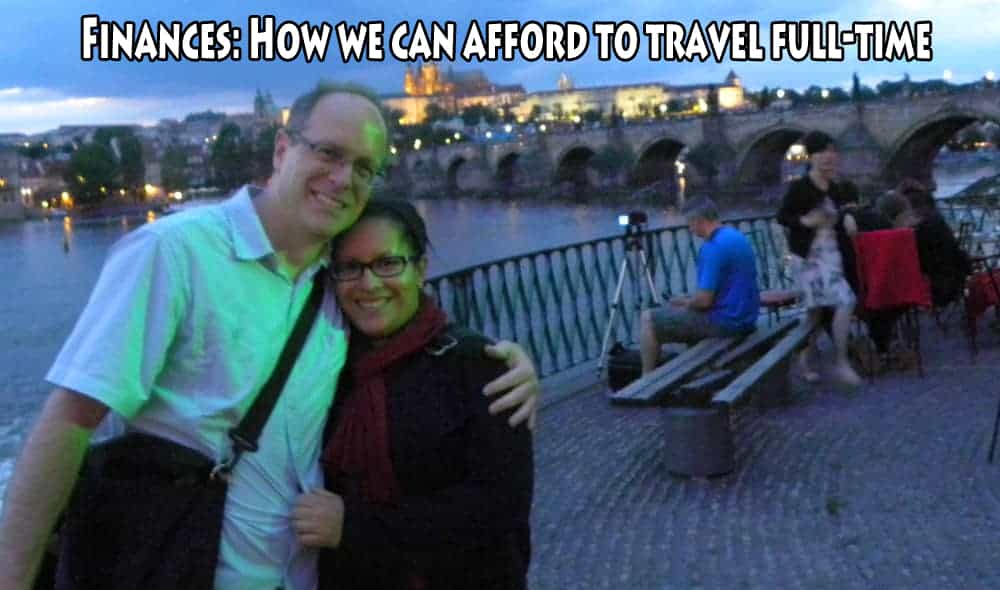
Great blog and on-point observations(the whites biking in 35c :))! We spent around 10 days in South Africa and can totally resonate to your feelings of “sadness” like you have never felt before while leaving this country – it has so much to offer! I can definitely see myself going back every year for at least a week! We were a group of 3 travelers from India & we felt the people in South Africa were not the warmest but just about friendly with us. We had great airbnb hosts and places to stay in! We devoured on the food and the our favourite stop was “Pick and Pay” as we drove for more than 2000 kms along the Garden Route, buying fast food, sandwiches, fruits, beer(loved Hunter and Castle), wine & groceries for our journey!
Thank you very much for your comment Sinchita.
Yes, I always think South Africans and Australians a bit similar in their approach to life. They’re tough, probably a result of their environment.
Great to hear about your trip. Sounds like you love it as much as we did (we probably followed the same route through the Garden Route).
All the best in 2020!
was a bit astonished about yr remarks about household help, supermarket packing and parking help…have all that here in portugal as well…
by the way, our son , who is a freelancer, adores capetown and spends every year quite some time there. i, personally, know sa only from apartheidt times…
Thanks for taking the time to comment Gisela.
Yes, love Cape Town. I envy your son to spend so much time there.
What an amazing article! We spent six weeks in South Africa, Zimbabwe and Botswana in 2012. My Dad loved Cape Town during the second wold war, as a member of the Merchant Navy. He wanted my Mom to emigrate there after the war.
We loved the scenery and much of what he described was still there at the V & A along with the mountain covered with the table cloth. We shopped the local supermarkets and ate at home. We were warned about walking to stores but never had the feeling of nervousness while we were out.
We were at the Anglican cathedral to see a choir from the University of Jo’berg. At the end of the service, the verger announced that they had noticed some kids taking the hub caps off a vehicle and he was able to retrieve them without any problems. It illustrates, where there is crime it does not appear to be accompanied by violence.
Our time in Kruger and Blyde River was amazing using local guides. Our Zimbabwe experience had a large police presence but Botswana was very laid back. I would go back in a heartbeat and this time experience the Garden Route, spend more time in the Cape and explore Durban, which was another favourite of my Dad’s.
Your blog helped me relive the experiences of Southern Africa. Thank you! Keith
Thank you very much Keith. We WILL go back one day and want to cover many of the places you mention. Have been to Zimbabwe (when it was Africa’s jewel in the mid 80’s) but never to Botswana. I’m also intrigued by Namibia: the dunes and the skeleton coast. Maybe from reading too many Wilbur Smith novels 🙂
We did a 2 week road trip through the Garden Route a few years back. Best road trip we’ve ever had. Just amazing.
I think Africa is where you can still find the most beauty and adventure in the world. We hope to go back one day.
Thank you for your wonderful comment.
As a middle aged, white South African whose family have lived in South Africa for generations. I travel abroad whenever possible and I enjoyed your observations. Yes all races have learnt to be adaptable, highly innovative and resilient. There is fear, lack of trust, disappointment, passion and goodwill in abundance that is magnified by history and circumstance. I have to add that I know of wealthy black families that have white ‘au pairs’, but it is rare. White post graduates do indeed find themselves barred from many jobs but the average black person has fewer opportunities in terms of quality basic education.
Cape Town is the most beautiful but expensive city in SA.
Johannesburg being the financial hub is like many big cities, fast paced and sprawling. Durban is warm, friendly, cheap but has less to offer than Cape Town but the KwaZulu- Natal province has the magnificent beaches, game parks, midlands that are rather reminiscent of English Farmlands and then the Drakensberg which is the most spectacular mountain Range.
You still have a lot to see and we would love to have you return to this country of dramatic contrasts. i am often surprised that we do not have more tourists visiting this inexpensive, beautiful destination.
Thanks so much Debbie.
We travelled full-time for 6 years and South Africa is the most stunning country I’ve ever visited. It’s a different world right now when it comes to travel – but if there’s one place at the top of my list to come back to it’s South Africa 🙂
Hahaha…and I get really grossed out when I see people walk into a public shower with bare feet. #1 rule – shower shoes, all the time. I’ve seen people remove their flip-flops before getting into a shower with a very nasty floor. Maybe I’m a germaphobe…
Great post on your observations about South Africa, especially as a mixed race couple. My husband and I have spent a lot of time in South Africa, it’s almost like our second home. In fact, we outfitted our truck (Land Cruiser Troop Carrier), that we are currently traveling in, in the suburbs of Cape Town. It’s a fantastic, beautiful place and one that we would enjoy living – if there weren’t such a problem with crime and the economy. We’ve talked to many people that live in South Africa who have personal experiences with very violent crime. But that doesn’t stop us from spending significant amounts of time there. Africa, in general, is our favorite continent. It’s definitely gotten into our blood!
BTW, I laughed when I read your observation about people walking barefoot – everywhere. That still puzzles us and we haven’t found a good explanation!
Thanks so much for your comments Sheri. I went across to your site and I’m really impressed by how you travel (those are a couple of big-assed motorcycles!). I’d love to do some travelling with people like you.
I lived in Zambia a few years as a kid and throughout my life have come back to Africa. It’s in my blood and although not the easiest place to travel it’s also my favorite continent. And the way you travel it’s the perfect place because there’s so much potential for adventure. And the people are incredible.
I’ll make sure to check back into your blog. I really envy how you guys travel.
About the feet: sure, I understand when we talk about an African village with dirt roads. But when I see white guys with dreadlocks walking around in Cape Town, where dogs poop on sidewalks, that’s a whole other thing. Just seems a bit unhygienic.
Thanks for the comments Frank. Yes, lots of potential for adventure in Africa! And to be clear – I was referring to the white people (kids, women, men) walking around Cape Town barefoot as well — NOT the African villagers 🙂
Thank you for your post, the experiences of non South Africans are always insightful. The Western Cape is a very small part of South Africa with a subculture of its own. If you travel further north or even just to the other side of the Kwa Zulu Natal coast you will have a completely different experience. You might be able to see more of the real South Africa.
Thanks Betsie! Yes, we’ve had people tell us that and we’re hoping to do just that next year 🙂
Interesting observations about your experience as a mixed race couple, but it must’ve been nice to actually have some interaction despite it being based on skin colour! As a white couple we’ve only ever received subservient interactions with the blacks, they were always smiling and acting like we were far better than them (or that they believed WE thought we were better than them, simply because we were white). And I hated it. We stayed with family and I’d try and do simple household jobs myself, normal things that I’d do at home (like filling my waterbottle!), but my ‘helpful’ actions were just received with hostility and puzzlement from the staff. Made me really uncomfortable and because of that I don’t think I could ever live there, much as I loved visiting. I could never treat the blacks in the way the whites do, but the blacks wouldn’t accept that from me so it would be a non-starter. And as you say, there is no future for white kids in SA, most leave to study abroad where there are more opportunities, and the families are left behind, or have to follow. Having said that, despite the threat of crime, it has been one of the places where we’ve felt most relaxed, (and I’d love a jacaranda in my garden!) and I can see us revisiting again in the future. Although now you’ve pointed out that spider I’m not so sure…man I run at tiny money spiders (and last night had nightmares about giant spider crabs chasing me!) so you’ve now gone and shattered my SA dream!!! 🙂
Interesting what you say Heather. It’s hubbie’s family that is South African? The relationship between black/white is what I was trying to describe with the owner and housekeeper – I think it’s so ingrained on both sides that it’s almost like a parent/child relationship..I don’t know how else to describe it. Yes, maybe the black staff just felt you we’re taking a task that was theirs away…and maybe felt threatened. God, if whites went around doing their own shit there would be serious trouble 🙂 Even in our house the owner didn’t know how the washer/dryer worked (“Pamela takes care of that”) and we had to figure it out on our own.
Agree about feeling relaxed. Just like in Brazil, SA has a bad rep – but unlike Brazil I didn’t feel I had to look over my shoulder every 2 seconds. Felt safe there. And the reality is that crime is mostly black on black in the poor townships.
Maybe we’re too busy analyzing SA from a typical Western point of view? Maybe that’s half our problem.
I think it’s great that you have Lissette who can help give you perspective from a person of color’s point of view. As a person of color, whether it’s good or bad, consciously or subconsciously, I ALWAYS look at things through the lens of race because I understand that it’s how people judge me first and foremost. Before they see anything else, they see the color of my skin. And although I wish it didn’t have to be this way, it annoys me to no end when people try to act like they don’t see color. So while I haven’t been to South Africa yet, based on how you describe race relations there, despite it’s beauty, I couldn’t see myself living in a city like Cape Town where the “haves” are always white and the “have nots” are always black and/or people of color. I think that’s tragic. On the other hand, I’ve heard that Johannesburg is kind of how one would imagine Harlem would’ve been during the Harlem Renaissance. Overall, I love exploring issues like this and observing these kinds of things when I travel, so regardless of how tragic the situation may be, it makes me all the more curious to visit South Africa and experience it for myself.
We also always find it interesting and we’ve had it go both ways (I was treated like crap in Brazil but they liked Lissette just fine). But sometimes its just a subtle thing, just enough to know something is off and to go hmmmm…
I do hope you see South Africa just because it is so different. Sometimes its a bit of a time warp. But when they’re nice they’re really NICE. It’s actually Lissette who suggested that we could come back next year and explore other parts of South Africa. So she still overall had a very good experience.
I love the way you cut to the punch when you write, you don’t sugar coat, you just state what’s on your mind. That region of the world is not on our radar and I’m guessing we won’t make it there (never say never) so I’ve actually enjoyed reading your posts because you’ve painted a realistic picture of the local life and culture. There is no such thing as the perfect place and of course we all can’t like the same places, sites, things to do, etc., but even when travel in our own countries we can see the disparity. We just took a 2-week road trip through the south and man, it’s like traveling in a different country. Fascinating, fabulous and challenging all at the same time. p.s. Tell Lissette I would have FREAKED out over that spider – just seeing the picture made my skin crawl. 🙂
Thanks Patti. You know what, Lissette would come back to South Africa ten times over rather than go to the Southern US (where she’s also been by the way). Thanks for adding a bit of perspective.
I hate sugarcoating, it’s fake and weak. I think maybe people can have an experience that’s maybe not representative of what most travellers would experience – but I think they have a duty to at least be honest about what they experienced.
The good far outweighed the bad and as I say, we’d love to come back to South Africa. I didn’t want people to just focus on the negative, as you say there’s no perfect place. But if you can Patti, please go – it’s an astonishingly beautiful country and the good people outweigh the bad by a huge margin 🙂 I’d honestly go back tomorrow if I could.
We felt the exact same way about Cape Town and we were only there for 2 weeks! I’ve never paid much attention to the color of someone’s skin – it just isn’t how I was raised. But, being in Cape Town felt a bit like stepping into the American south in the 1950s (or so I’m guessing). Short story: When we arrived, we boarded the public city bus and headed to Hout Bay where we were staying. Our apartment was in between two bus stops, so we figured we would get off a the first one and walk downhill. When we arrived at the stop, the packed bus nearly emptied. As we were quickly gathering our stuff to get off, only two women were left on the bus (both white). One woman grabbed my arm and with all seriousness said, “Don’t get off here.” I was absolutely taken aback. We heeded her advice and stayed on one more stop (and walked up hill loaded down with our backpacks). The stop where we wanted to get off the bus was Imizamo Yetho Township, a shanty town. Later, we learned that the Hop-On-Hop-Off bus arranges walking tours through the neighborhood. So, then I was thoroughly confused. How is that a tourist sight, but not safe to walk past on the main road? Furthermore, why is it a tourist sight at all? What is the attraction? To barge into an extremely poor neighborhood and gawk? In hindsight, I wish we would have gotten off at that stop and said hi to a few people along the way. It sort of set the tone for our trip, causing us to be overly aware of the divide. We left Cape Town with so many conflicting emotions: anger, embarrassment, fear, awe, elation. It truly is a beautiful place with amazing people of every color, but our trip felt somewhat tainted. And I think that is unfortunate.
You know what? Sometimes locals are the worst. Maybe they know a friend of a friend that something happened to, maybe they hear stories in the news…they mean well but locals can ruin your experience with their paranoia. I wouldn’t have gone anywhere near a township at night, but during the day nothing was going to happen. And as you say, they do get a lot of tours going through the township and I’m sure they don’t want to destroy that.
We had our own stories with local whites. A couple we met basically cringed when we told them of some of our experiences with friendly blacks. They just called them “thieves”. I didn’t want to include that story above because this is just one couple and I don’t think (I hope) that most white South Africans think that way.
We never had anything happen, never even felt threatened over 3 months. We would walk at night in the neighborhood but if anywhere downtown would call Uber to take us home as a precaution.
About Imizamo Yetho Township – we thought of doing it but decided it’s not for us. For exactly the reasons you cite. Lissette is from the South Bronx, she said she would have hated had tourists come into her neighborhood when she was a child, taking photos. I’ve heard arguments that it supports these neighborhoods and that it is a good thing. But we just didn’t feel comfortable walking in as tourists.
I’m so sorry that you left with this experience. Yes, we came in with some anxiety but that disappeared quickly. Lucky for us we have a SA friend who instead of giving us all the worst possible scenarios instead focused on all the positives (with a few precautionary notes). I’m glad we listened to him and not some prejudiced local (And that goes for anywhere: had I listened to locals I would have spent my time in Colombia and the Dominican Republic holed up in a hotel room).
I found this post to be very insightful. I’ve read strong opinion pieces by both black and white travelers to SA and yours stands out as the best – most likely, as you said, because you two have the unique perspective of being a mixed race couple. Being able to read each of your opinions and experiences really makes the country more real to someone who hasn’t yet been there. Thanks for sharing!
Thank you very much Katrina, that’s a very nice comment! I do think it helped being a mixed couple as we pretty much got the best of both worlds.
Thanks again for the comment.
That’s actually incorrect. The land was originally inhabited by the Khoikhoi, who used the land for farming, and as pastures for their cattle.
Thanks Cole. I didn’t know that the San made it as far as the Cape. You’re right. But the black tribes weren’t there until after the Dutch came. That was my point.
But thank you for the precision.
That’s not true either. The Khoi was the original people of Cape Town. The Dutch was the second group of Europeans to find Cape Town. The Portuguese was the first. https://en.m.wikipedia.org/wiki/History_of_Cape_Town
Yes, but my understanding is that the Portuguese (while discovering it) never actually settled there.